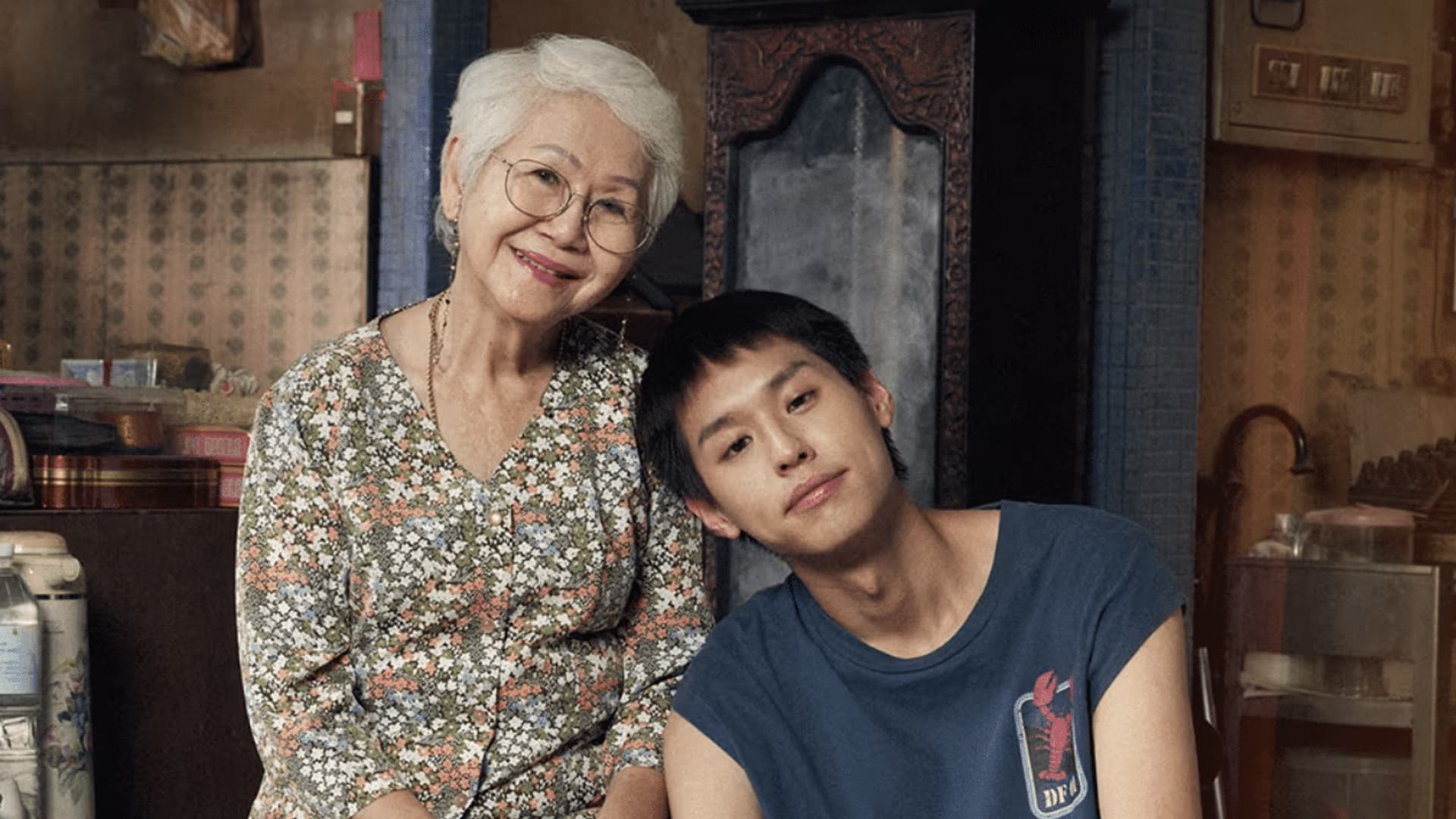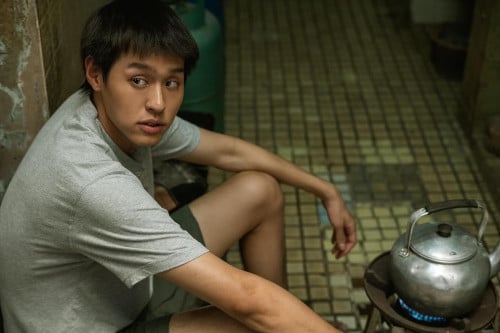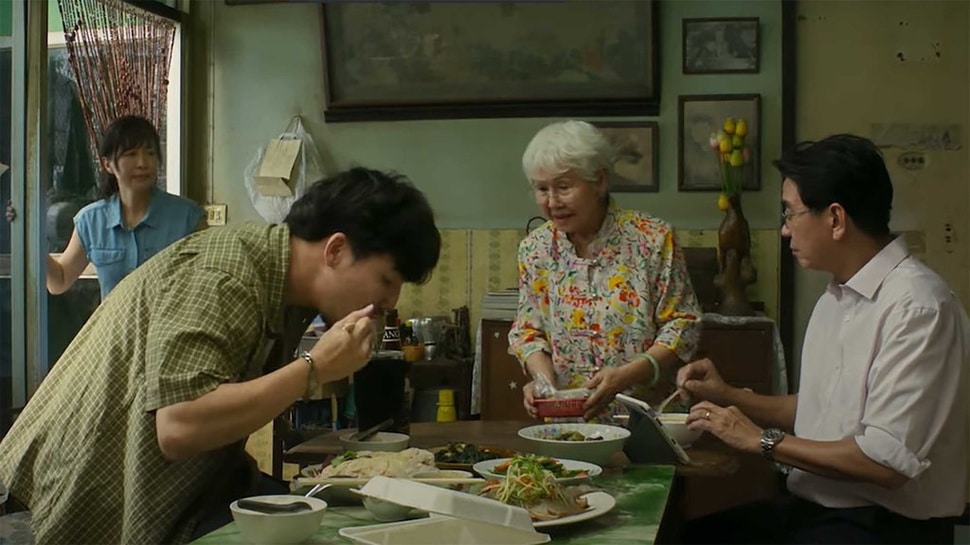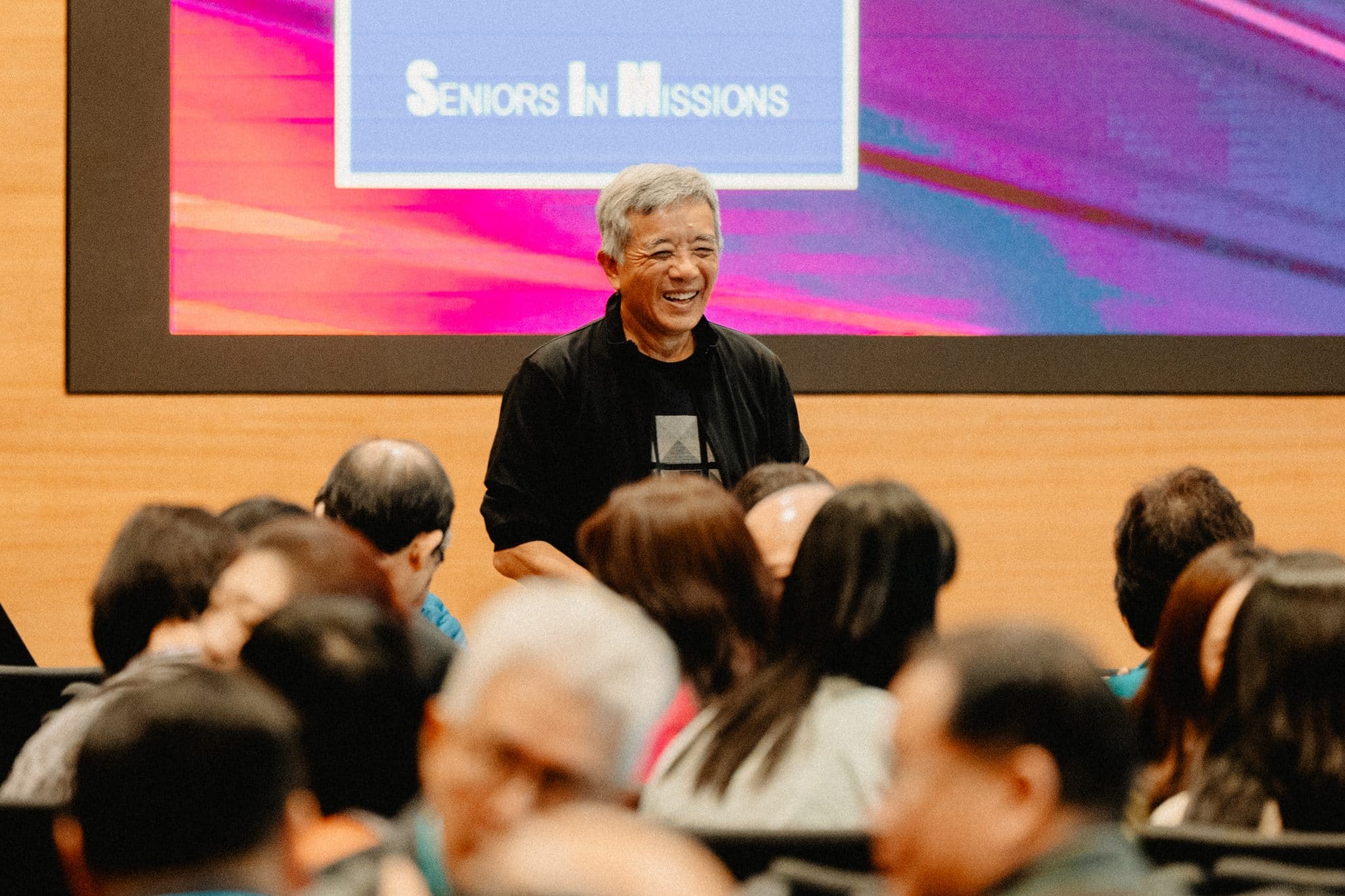How To Make Millions Before Grandma Dies: A tear-jerking parable about true riches
by Theresa Tan // June 7, 2024, 2:28 pm

How To Make Millions Before Grandma Dies is a beautifully written and shot Thai film about a young man who starts off scheming to win a large inheritance from his dying grandmother, but gains much more than mere riches. Photos from GDH.
Warning: Spoilers ahead for those who have not watched the movie.
This runaway hit of a Thai movie is the number one film across Southeast Asia, breaking box office records in Thailand, Indonesia and Singapore.
It has also spun a TikTok trend of young people sharing videos of their puffy, tear-stained faces after watching the movie.

Written and directed by Pat Boonnitipat, How To Make Millions Before Granda Dies (Grandmother’s Grandchild in Thai) is 2024’s top grossing movie in Thailand, Indonesia and Singapore. Its touching content has also sparked a TikTok trend of moviegoers crying.
Thanks to TikTok, I found myself sharing the hall with Gen Z moviegoers, many of whom came prepared with visible packets of tissue.
I, on the other hand, wondered if the movie was going to be too much reality to be any (weepy) fun for me.
You see, over the last 21 years I have been caregiver to four parents: My mum (who died of cancer), my dad (who died of diabetes complicated by Parkinson’s), my father-in-law (who passed away during COVID after battling dementia) and right now, my mother-in-law, who also has dementia.
In short, I’m a bit jaded.
But five minutes into what is now the biggest movie in Singapore, I found myself deeply invested in the tale of young M (Putthipong Assaratanaku), a university dropout who spends his days being a “game caster”.

M (Putthipong Assaratanakul) lives with and off his mother Chew (Sarinat Thomas), the archetypal uncomplaining sacrificial Asian daughter and mother.
Nowhere near making the millions he imagined, he leeches off his hardworking, long-suffering mother Chew (Sarinat Thomas), and has no time nor regard for family traditions.
One day, he watches his cousin Mui inherit her grandfather’s huge house after becoming his caregiver in his last days. She tells M that she became Agong’s “number one” by giving him the one thing nobody else – not even his own children – could: Time.
Inspired, M sets his sights on his aging Amah (grandmother), played by the wonderful Usha Seamkhum. She is independent, lives alone and sells congee every morning.

Inspired by his cousin’s get-rich scheme, M targets his cancer-stricken Amah (Usha Seamkhum), hoping to win her heart and ultimately, her money.
When the doctor tells his mother that Amah has Stage 4 colon cancer, the family decide to keep it a secret from the elderly woman.
M sees his chance to strike fast and move in with his grandmother. She’s no fool – the fact her only grandson suddenly shows up could only mean one thing.
To his credit, M tries hard. He brings her beef noodles, only to be told her religion forbids it. He queues for her favourite fried fish, only to be told she’s already eaten. You feel his frustration, yet you can’t fully empathise because he is motivated by a potential inheritance.
The development of their unlikely relationship makes up the core of the movie: A young man is transformed day by day into the loving caregiver he initially pretends to be. An old woman learns to slowly trust one member of the family again after being hurt and disappointed for so many years.

M may not have realised it when he offered to help his grandmother at her congee stall, but he was receiving his heritage and inheritance. Think: Do we recognise our true inheritance as Christians?
The reality of family relations
The tension lies in the question: “Who will get the house after she dies?” It’s a common breaking point for many families, especially Asian families, whether rich or modest.
The oldest son, Kiang, whom everyone believes is her favourite, makes a bid to move his mother into his big house in the country, where he lives with his gold-digger wife and only daughter who attends international school and speaks English.
The youngest son, Soei is a gambler who is always stealing from his mother and running away from creditors.
The daughter in the middle, Chew, works blue collar jobs and is the one constantly saddled with taking her mother to the doctor and doing other tasks expected of daughters.
These relationships are so accurately portrayed, I found myself tearing at many parts.

Her own children could not make time but her grandson sowed his gaming hours into accompanying her to chemotherapy, week in, week out. Think: Why ignore the living and weep for the dead?
When Kiang insists his mother should stay in the country and recuperate, it is M, who has been waking up at 4am with his grandmother to bring her to chemotherapy, that points out that Amah would have to wake up at 2am to get to the hospital.
It is something only caregivers can identify with: You live with the elderly person long enough to know even their smallest needs and preferences.
It is difficult for someone else – even their own children – to understand why their way won’t work.
In another scene, Amah goes with M to see her brother, who inherited his big house from their parents while Amah, being the daughter, was left with nothing.
Initially, they are treated well: M gets to eat from their delicious buffet, and Amah, bald and wearing her chemo beanie, sings songs lovingly with her elderly brother.
But when Amah speaks with her brother about getting money to buy a burial plot, her brother chases her out of the house.
I broke out my big tissue packet for that one.

When Soei, her youngest good-for-nothing son wants to eat the first fruit of her pomegranate plant, Amah chases him away. Watch the movie to find out why.
What is inheritance?
The tussle for the title deed to her small house happens when Amah’s chemotherapy fails.
While his mother is in hospital, older brother Kiang demands to know where the deed is kept. Sister Chew tells him it is in Amah’s cabinet and he leaves in a hurry to retrieve it.
Chew then pulls out the deed from her bag and hands it to her younger brother Soei. “Quickly get it transferred,” she tells him.

Thinking that, as the firstborn son, he has every right to his mother’s house, Kiang harasses his sister Chew for the location of the title deed. Think: what are some things you believe you are entitled to?
M, watching this, is crushed. All his “hard work” had been for nought – his gambler uncle got the house even though he did not spend a day caring for his own mother.
M rails at his grandmother for her unfair treatment. “Why am I not your number one?” he says, hurt.
The only one who doesn’t put up a fight is his mother. In a conversation with her son, Chew says matter-of-factly: “Sons inherit the house. Daughters inherit cancer.”
The prodigal son to the end, Soei sells the house immediately, and puts his mother in a nursing home.
M’s heart bleeds for his grandmother, who is left to die alone. He brings her back to his mother’s home, where he continues caring for her.
Of course, Amah dies, but in the best way possible: Holding her grandson’s hand while he sings to her.

Seeing that his Amah is too tired to climb the stairs, M coaxes her to sleep in his bed like they used to when he was little. Think: What little things did we used to do that made our parents/grandparents feel our love, that we can do again?
All around me are loud sniffles from the Gen Z moviegoers. A plaintive wail goes up: “I’ve run out of tissues!”
That scene brought me back, not to my mother on her deathbed (who looked exactly like Amah with her sunken eyes), but to the many times my mother and my then 4-year-old son would sit together on her hospital bed and sing “How Great Thou Art” before she died.
In the end, M realises that he may not have inherited the house, but he inherited something even greater. (I won’t spoil it for you.)
As he and his uncles and mother ride with Amah’s coffin to her burial plot, M finally breaks down. He tells his grandmother, “You’re my number one.”
Many tissues were needed.
Reflections from a Christian mother and daughter
1. Prepare to provide for your grandchildren
Proverbs 13:22 tells us that a good man leaves an inheritance to his children’s children. What Amah left her grandson transcended mere money and property.

What shall it profit a man, if he gains the whole world, and loses his soul? M came to understand what his Amah’s legacy truly was.
He learned that family is more important than money.
He learned what it means to have your heart broken, and still love anyway.
He learned to make his grandmother’s best-selling congee.
Indeed, this movie brings to life Proverbs 17:6: “Children’s children are a crown to the aged.”
Timothy and his mother Eunice and grandmother Lois come to mind (Tim 1:5), who shared a family legacy of great faith.
Apart from riches, grandparents can and should pass down a spiritual inheritance to their children and grandchildren.
2. Teach your children and grandchildren well
Proverbs 22:6 says “Train up a child in the way he should go and when he is old he will not depart from it.”
M’s journey demonstrates that the things we teach our children and grandchildren when they are very young are seeds that bear fruit later.

Time is the most precious gift we can give our family, and our Heavenly Father. Amah loves to play cards, but only her grandson makes time to play with her.
Whether or not we live to see it, we can trust in the Lord that His word will not return to Him void.
3. Honour your father and mother
I did not truly understand Exodus 20:12 until my parents fell ill when I was in my 30s.
I had always thought honouring meant just not saying bad things about them even when they were unreasonable or annoying.
The one who honours her mother in the movie is M’s mother, Chew. Although she is the busiest one, she takes time off work to bring her mother for therapy.
Time and company are two things I learned to honour my parents with. I wish, now that they are gone, that I spent more time with my father, who had to stay in a nursing home when I brought my mother to live with me.
Honouring is acceding to their wishes, even though we may disagree entirely.
Chew becomes her mother’s accomplice in giving the house to her younger brother, knowing she will inherit nothing from her.
When her mother finally tells her, “You’re the one I always want to be with,” that is her reward. She doesn’t get the silver or the gold, but she has her mother’s heart.

Once a week, her children come back to eat lunch with her. It’s the most important day of the week for Amah. Think: Do you prioritise God or your own interests? Do you commit to spending time with your parents, or are they a lower priority than your children’s enrichment classes?
4. The Lord Himself is my inheritance
How To Make Millions Before Grandma Dies ultimately brings me back to Psalm 16:5: “Lord, you alone are my inheritance.”
Nothing in this world is guaranteed. Our children may turn out to be prodigals despite our best efforts. Our parents may use us as an ATM or call us a lousy child.
Whatever our lot in life, we can be assured that God Himself is our portion, our exceeding great reward. In this life, we will have tribulation, but Jesus has overcome the world.
We get to spend eternity with Him, our heavenly Father, our “number one”.
RELATED STORIES:
Ask Salt&Light: How do I honour both my calling and my parents?
At 30, she quit her dream job to care for her ageing parents – and learnt God wastes no sacrifice
Her Grandpa Richard Magnus planted a “mustard seed”. Here’s how Nicole, 17, is sprouting it
We are an independent, non-profit organisation that relies on the generosity of our readers, such as yourself, to continue serving the kingdom. Every dollar donated goes directly back into our editorial coverage.
Would you consider partnering with us in our kingdom work by supporting us financially, either as a one-off donation, or a recurring pledge?
Support Salt&Light


